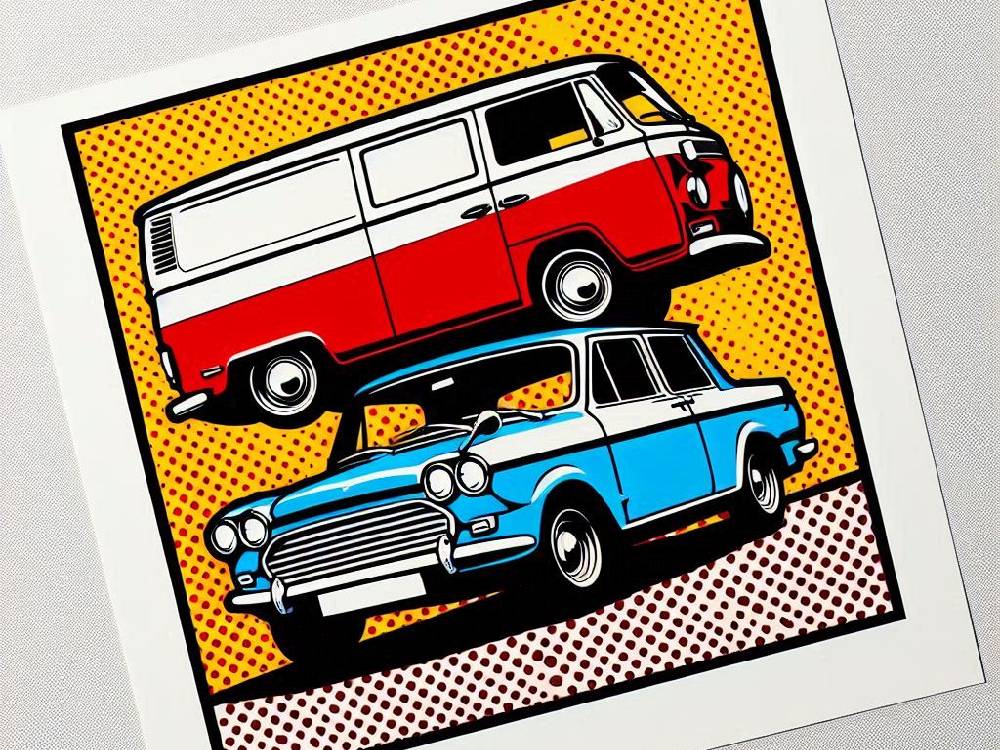Today, knowing the difference between a car and a van is crucial for tax and insurance.
The Definition Of Cars And Vans: Understanding The Difference
Cars and vans are both vehicles that we use daily, but what exactly distinguishes the two?
Understanding the difference between cars and vans is important for several reasons,
including taxation, insurance, and practicality.
Car-Derived Van: A Grey Area
Car-derived vans are a unique type of vehicle that often confuses people.
According to HMRC, a car-derived van is a goods vehicle that is constructed or adapted as a derivative of a passenger vehicle.
These vehicles are vans that you can buy as a car, such as the Ford Fiesta or Vauxhall Corsa.
From the outside, they look like a cars, but inside, they function like vans with no rear seats and a large payload area.
However, they typically have no side or rear windows.
Double Cabs
The area that causes the most confusion is double cabs, also known as crew or kombi vans.
These are vans such as the Volkswagen Transporter or the Ford Transit that have a second row of seats.
Pick-Up Trucks: The Payload Predicament
Pick-up trucks like the Ford Ranger, Toyota Hilux, and Nissan Navara can cause confusion with classification.
The key thing for a pick-up truck to become a commercial vehicle is if the vehicle’s payload is over 1000kgs.
Most double-cab pick-ups have a carrying capacity over this, but it’s important to ensure it stays over this figure.
Small payload vehicles are considered passenger-carrying vehicles and are taxed and insured as cars.
What happens If My Commercial Vehicle Is A Car?
If your commercial vehicle is classified as a car, it may affect your insurance.
This could leave you without coverage in an accident.
You also won’t be able to reclaim VAT on the purchase or lease unless you prove 100% business use.
And you’ll lose the Benefit in Kind taxation, resulting in a higher rate of tax.
How To Determine If Your Vehicle Is A Car Or A Van
Your V5 logbook can offer guidance on whether your vehicle is a car or a van.
Manufacturers must declare the class of the vehicle at the point that it leaves the factory gates, using four classifications:
M1 for cars, M2 for minibusses, and N1 and N2 for commercial vehicles.
However, this doesn’t account for car modifications after the vehicle leaves the factory.
It’s also worth remembering that modifying your vehicle could invalidate your insurance.
HMRC and your insurer may have different views.
Weigh your vehicle and check guidelines from governing bodies to be sure.
The Differences Between Car And Van Insurance
Van and car insurance are different, with each having its level of risk, features, and cover.
Your vehicle requires the correct insurance, and you cannot drive a car on your van insurance.
MultiCar insurance can help cover both a car and a van.
Conclusion
Understanding the difference between cars and vans is essential for practicality, taxation, and insurance purposes.
Double cabs, car-derived vans, and pick-up trucks often fall into grey areas.
Checking payload capacity, modifications, and guidelines can clarify your vehicle’s classification.
Ensure that you have the correct insurance coverage for your vehicle.
Be aware of the potential impacts on your taxation and insurance coverage if your vehicle is misclassified.
Understand the distinctions between cars and vans.
You can make informed decisions about your vehicle use and ensure compliance with relevant regulations.





